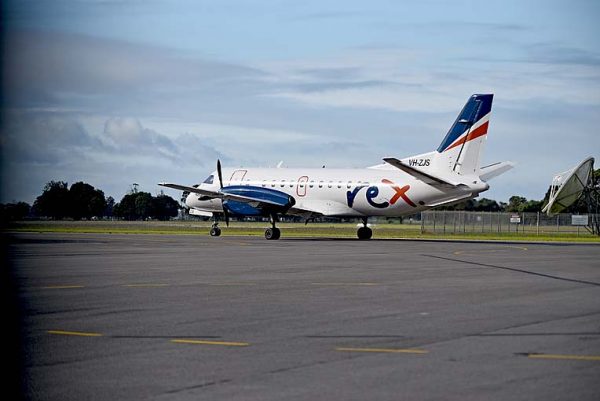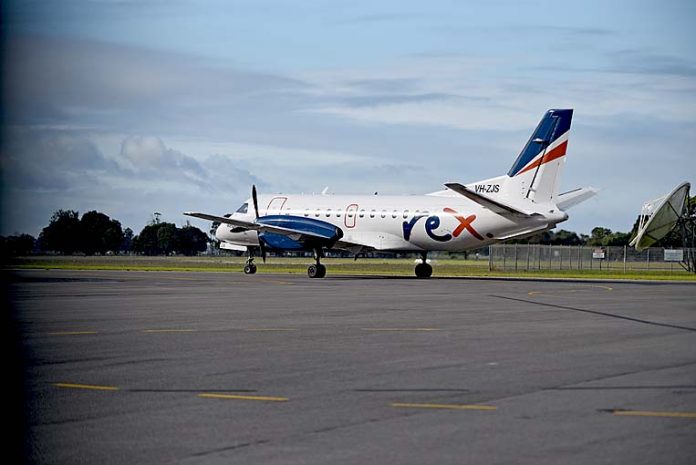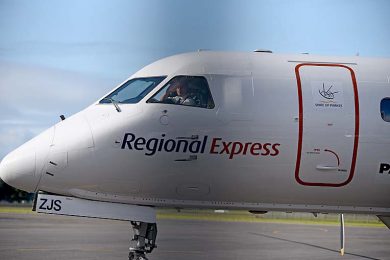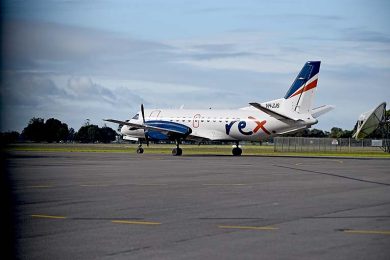
A REGIONAL aviation carrier has accused two national airline giants of “rapacious plundering” of its pilot pool, which it says is causing disruptions to scheduling.
The fresh comments follow Regional Express (Rex) scaling back services at Mount Gambier Airport and expressing its opposition to the “gold-plating” of regional airports.
In an open letter to regional communities, the airline has flagged it will trim more services in regional Australia to “conserve resources”.
This fuelled concerns yesterday from Shadow Regional Development Minister Eddie Hughes, who warned the loss of services would have a “devastating impact” on regional communities.
“They are the lifeblood of regional economies given the tyranny of distance between cities,” Mr Hughes said.
“But this is about more than just the economic impact, regional people rely on these flights for health services.”
Mr Hughes called on the Marshall Liberal Government to outline what it planned to do to address the looming crisis for regional South Australia.
Both Qantas and Virgin Australia yesterday rejected claims by Rex they were actively poaching its pilots.
In an open letter, Rex chief operating officer Neville Howell said the aviation industry was being hit with a global pilot shortage.
“Regional aviation is the hardest hit as many local and international airlines actively poach pilots from Australia’s regional airlines to fill their own shortages,” Mr Howell said in the letter.
“Whilst Rex’s initiative is successful in responding to natural attrition rates, it is not enough to stave off Qantas and Virgin Australia’s rapacious plundering of Rex’s pilot pool instead of using their not inconsiderable resources to train their
own pilots.
“In the past two years, these two airlines collectively have poached 17pc and 56pc of Rex’s first officer and captain establishment respectively. These two airlines are causing widespread chaos and disruptions to regional air travel by their selfish and irresponsible actions.”
Because of the critical pilot shortage, Mr Howell said Rex was not able to have its usual contingent of stand-by pilots rostered for duty.
Consequently, any last-minute sick leave may result in flights being cancelled or combined with other routes.
“However, while we are obviously not proud of our current performance, we would like to reassure our customers that Rex’s cancellation rate of 1.29pc is still significantly lower than the cancellation rate of QantasLink at 2.39pc and Virgin Australia Regional at 2.74pc,” Mr Howell said.
“Rex is acutely aware of the effect that flight disruptions have on travel plans, whether it be for leisure or business, and Rex apologises for all past and potential future disruption to services throughout the network as a result of the industry-wide global pilot shortage.
“We thank the regional communities in advance for their support, understanding and indulgence in this difficult period.
“We promise that we will redouble our efforts in pursuing all options for pilot recruitment, including overseas recruitment.
“We will also be reviewing our network with a view to trimming our schedule where possible to conserve resources.”
In response, Qantas said it was “strange” for a company to blame its competitor for its employee retention problems.
“Qantas serves many regional communities across Australia and we’re proud that we’re an airline that many people want to work for,” a Qantas spokesperson said.
“It’s natural to see some movement between airlines from people seeking advancement, just like in every other industry.
“Our $20m pilot academy will train pilots not just for the Qantas Group, but for the industry more broadly – up to 500 a year.”
Virgin Australia also strongly rejected any suggestions it was impacting on regional air services through pilot recruitment.
“We have a comprehensive pilot recruitment and training process, which includes running our own Virgin Australia cadetship program in partnership with Flight Training Adelaide and working with a number of Australian universities to provide input into their pilot training programs,” a spokesperson said.
“We’re proud to offer a strong career path and development program, with almost 80pc of current pilots having been with us for more than five years.”










